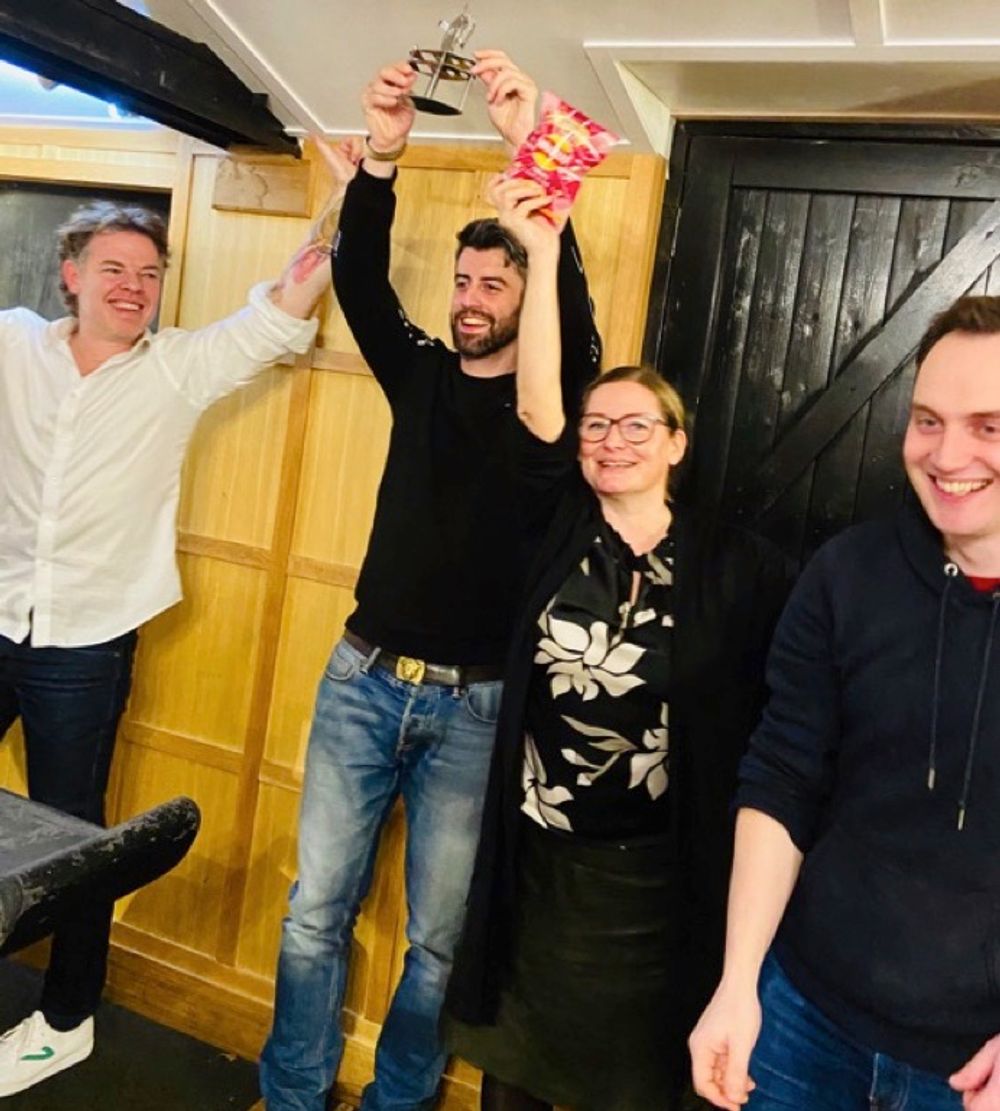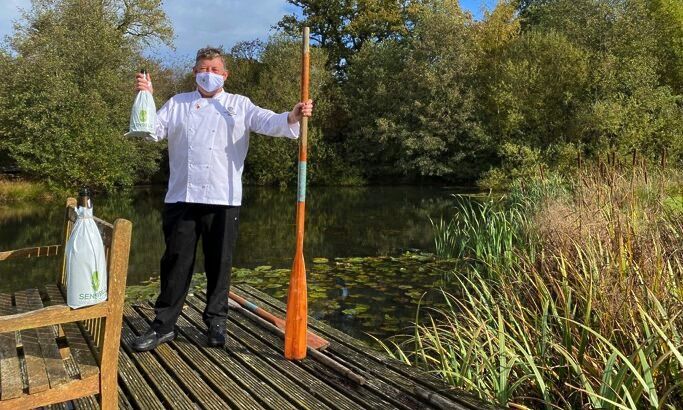“There is not one Champagne producer who is willing to admit that its most expensive deluxe cuvees are not Gold medal quality, and for their reputation and price we tend to agree. That is why, if a Champagne deluxe cuvée does not win a Gold medal, it has failed,” Tom Stevenson.
This was the third ‘judging’ that I had attended under lockdown rules having judged at both Decanter World Wine Awards (DWWA) and International Wine and Spirit Competition (IWSC), but this was going to be different as all participants were going to be put into a ‘Bubbly Bubble’ for two weeks; living, judging and working together.
Tom Stevenson, the founder of Champagne & Sparkling Wine World Championships (CSWWC), wanted an environment as close to normal judging as possible and his only option was to set up his own Bubbly Bubble. This involved securing an unique site, ensure that all participants followed strict coronavirus testing and get everyone then isolated on site for two weeks in comfort and ensure that boredom or loneliness would not hamper the judging.
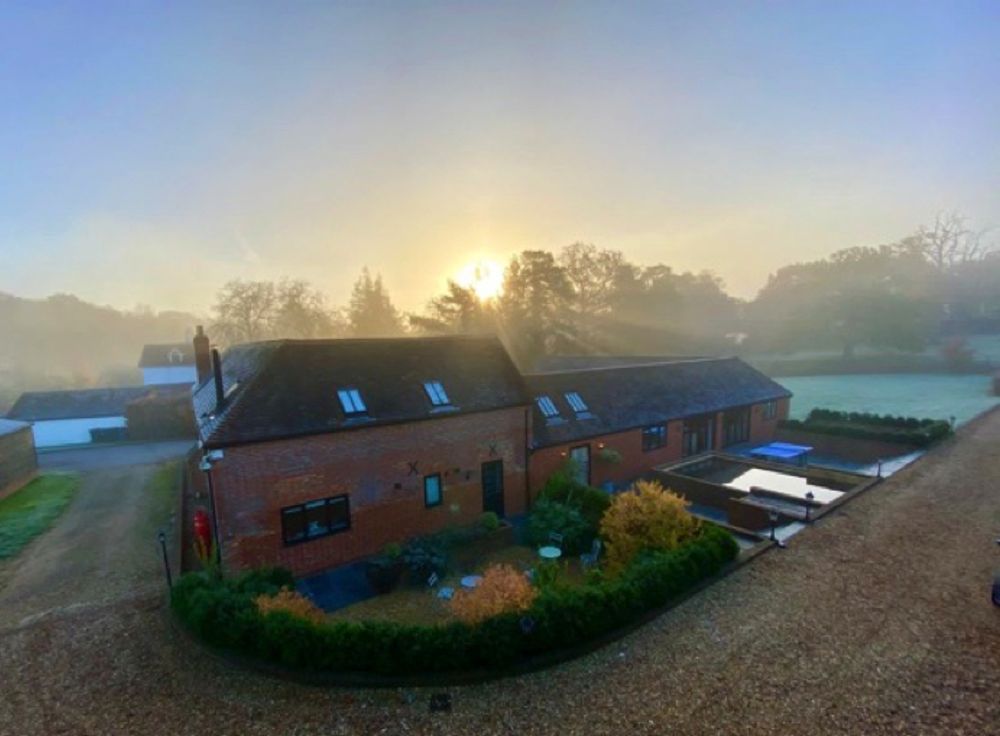
“Wakey-wakey, happy campers!” © Simon Stockton
The site Merrie Weathers was secured in the late spring; it is an isolated country estate on the Sussex/Kent border set within 50 acres of land.
All participants were asked to pass a Gold Standard Antibody & PCR Coronavirus Swab Test prior to arrival, and then on arrival were put through another test, this time a Coronavirus Rapid Antigen Test conducted at the entrance by two doctors, once passed (results came within five minutes) it was as if freedom had come back as hugs and handshakes were allowed but masks were not, it was like 2019 again! A further Rapid Antigen Test was carried out a few days later to ensure there were no hidden issues.
Of course all well and good having all 11 persons in isolation but there were many other issues to get over, firstly on the tasting logistics side Sensible Wine Services (SWS) had this all sorted with an onsite refrigeration lorry for all entries and racks and racks of Riedel Veritas champagne glasses, Tom’s number one choice for competitive sparkling wine tasting.
But how would everyone be fed, with no outside staff allowed on site, well here is where I come in as chef and ‘Head of Entertainment’. It was important for the wellbeing of the team to not only provide a full catering service but also to keep them entertained and with the restrictions in place ensure that they were having a happy experience.
Most of us had missed the pub in recent weeks, so we had an onsite pub set up, The Cock and Bull with darts, pool, billiards and table football as well as a big screen, real ale on pump and, of course, the statutory pork scratchings, nuts and crisps.
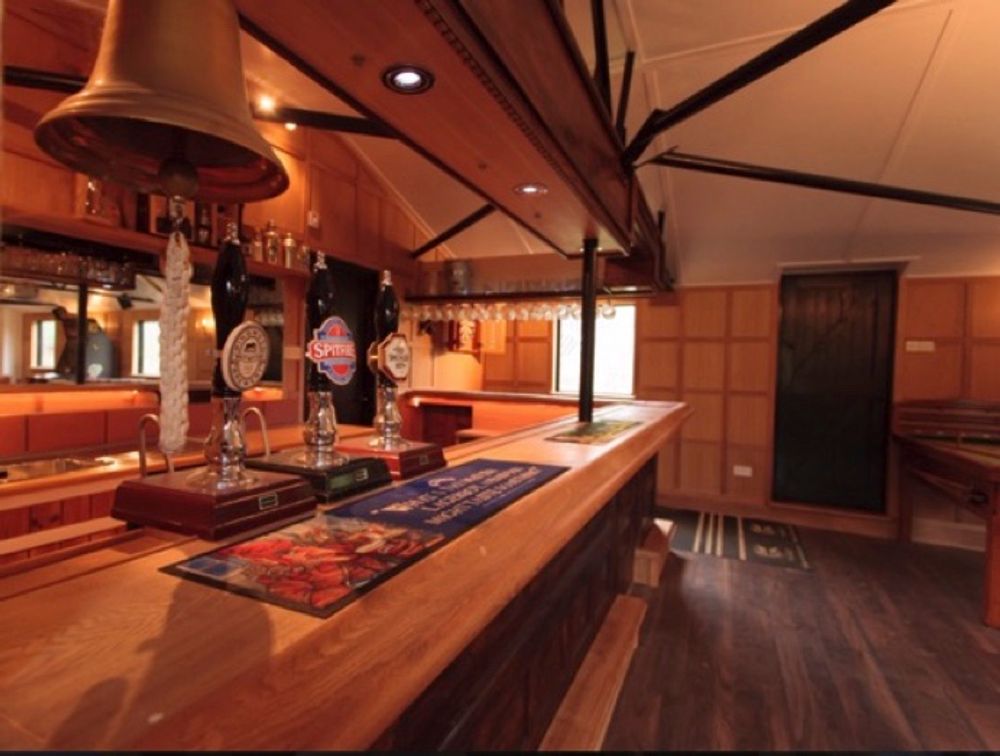
Besides the Cock and Bull, other entertainment facilities including a full cinema screen in the main hall, two kitchens and dining areas, numerous lounges to relax in and outside there was a heated swimming pool, tennis court, outdoor BBQ and a lake to fish in, besides the amazing grounds to walk through.
Entertainment was always going to be important and I gladly took over this role, any of you who have been on wine trips with me know that I always carry an armoury of games with me and this was no different and Family Fortunes became a great favourite as well as darts, with Essi Avellan MW leading the way.
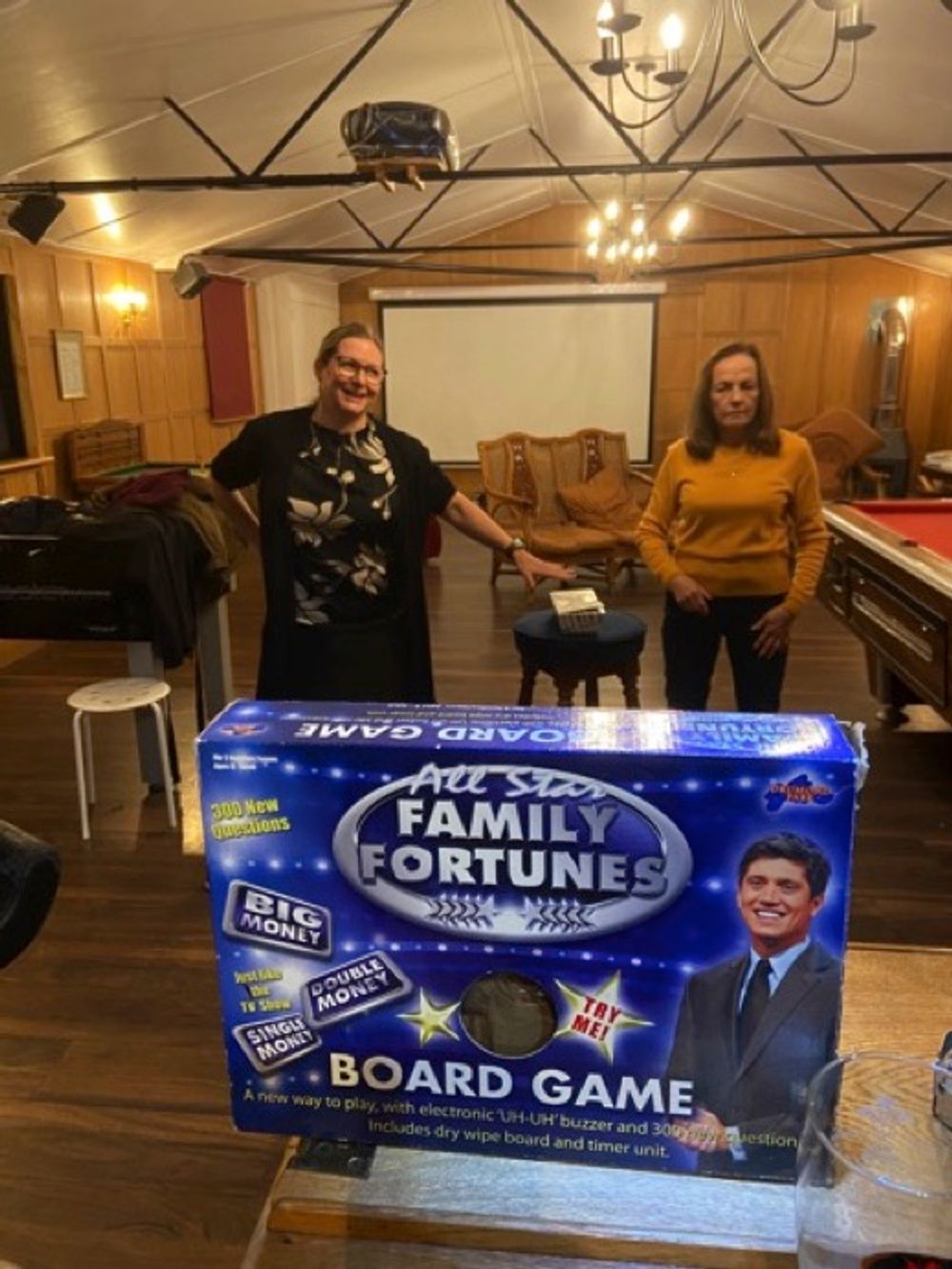
Feeding the troops was also imperative to get right, in ensuring that there was a balance, ranging from formal sit down tasting menus, to working lunches to themed evenings, BBQ and just simple TV meals.
One of the favourite dishes served was the foie gras, scallop and black pudding closely followed by the famous Harrow boiled egg
The background planning and logistics were carried out to perfection by Rachel Davey, a bubbly and invaluable member of the CSWWC team, supported by Eva Callaghan.
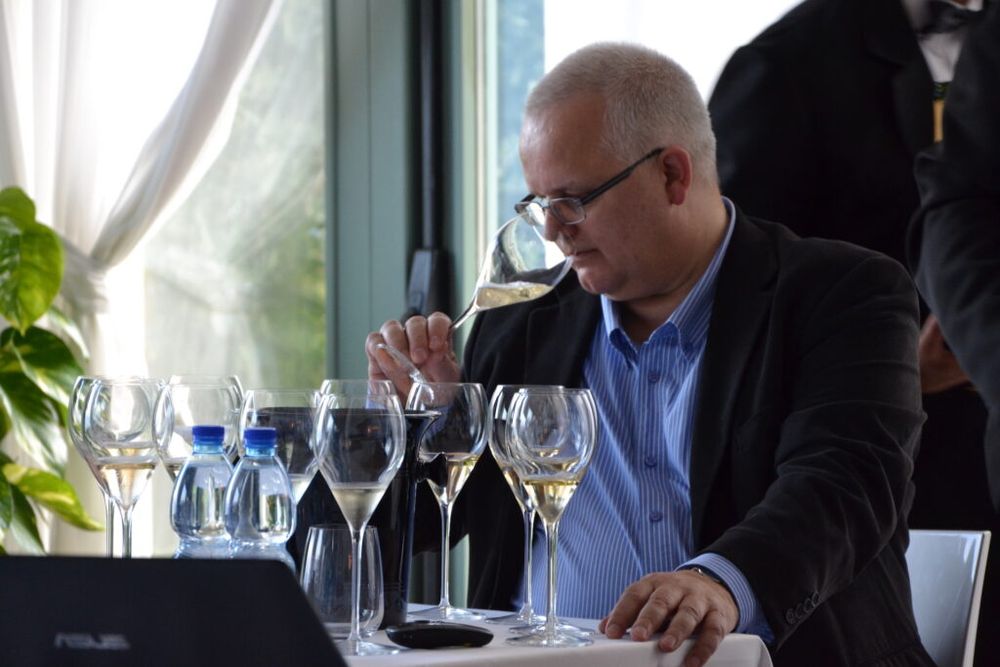
Tom Stevenson
So what makes CSWWC unique and even in lockdown received a record number of entries this year – over 1,000 including all the prestige houses? I put forward a few questions to Tom inbetween beating him at pool whilst enjoying a pint or two.
Can you explain to me the judging process Tom?
The formation of the judging at CSWWC is different from the other competitions in that the judging is carried out by only three judges. The ethos of the CSWWC is that a specialist competition requires specialist tasters and by having the same judges evaluate each and every wine, the results are as consistent as can be. I cannot see the sense in having a panel of four, which risks a hung jury and gives the chairman the casting vote. Not unless you don’t trust your judges.
So how did you decide on the other two judges?
When we set up the competition I sought out the two best sparkling wine specialists in the world to join me: Essi Avellan MW (who is his co-author for Christie’s World Encyclopedia of Champagne & Sparkling Wine) and, for the first five years, Dr Tony Jordan. When Tony became ill and sadly passed away in 2019, his place was taken by György “George” Márkus (Hungary’s leading Champagne expert and after five years as reserve judge at the CSWWC, one of the world’s most experienced tasters of sparkling from all over). This year, however, “George” could not attend due to travel restrictions and was replaced by the current reserve judge, Simon Stockton, who has also been with the CSWWC for five years. It is essential for a competition with a panel of just three judges to have a strong reserve judge and both Essi and I were absolutely delighted with Simon’s performance this year.
Tom, maybe we should try Darts to give you a chance of winning a game? Tell me about your reasoning on only announcing Gold and Silver Awards (and only Gold in the Prestige group)
Yes only Gold and Silver awards are announced publicly. But when judging, the wines are graded in the traditional fashion of: 1. Gold, 2. Silver, 3. Bronze, 4. No Award, 5. Possibly Faulty & 6. Definitely Faulty.
Some competitions set the bar below Bronze or create another award between Bronze and No Award, such as Commended. We simply set the bar higher and, for Champagne deluxe cuvees, higher still, at only Gold.
This ensures a clear message that all winnings wines at the CSWWC are special.
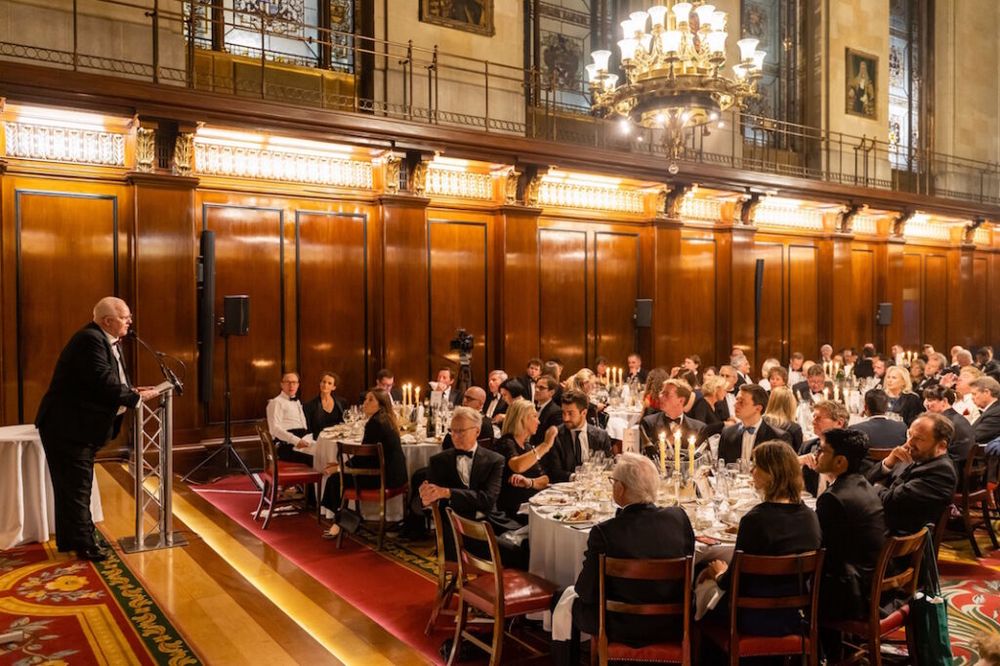
Tom Stevenson addressing the gala CSWWA dinner last year
And can you explain your reasoning on only announcing Gold Awards for deluxe / prestige Champagne cuvees?
While many consumers believe that every bottle of Champagne should be Gold medal in quality, we know this is not realistic. However, there is not one Champagne producer who is willing to admit that its most expensive deluxe cuvees are not Gold medal quality, and for their reputation and price we tend to agree. That is why, if a Champagne deluxe cuvée does not win a Gold medal, it has failed as far as the CSWWC is concerned.
Tom, I am sure I have seen a Bronze Award in the past ?
Yes, in exceptional cases, to encourage aspirational producers in emerging regions, the CSWWC have supplied a Bronze medal certificate, but it is always at the competition’s discretion and does not set any precedent.
So every day I have seen Orsi Szentkiralyi set aside by herself in a private suite overlooking the courtyard, is she self-isolating?
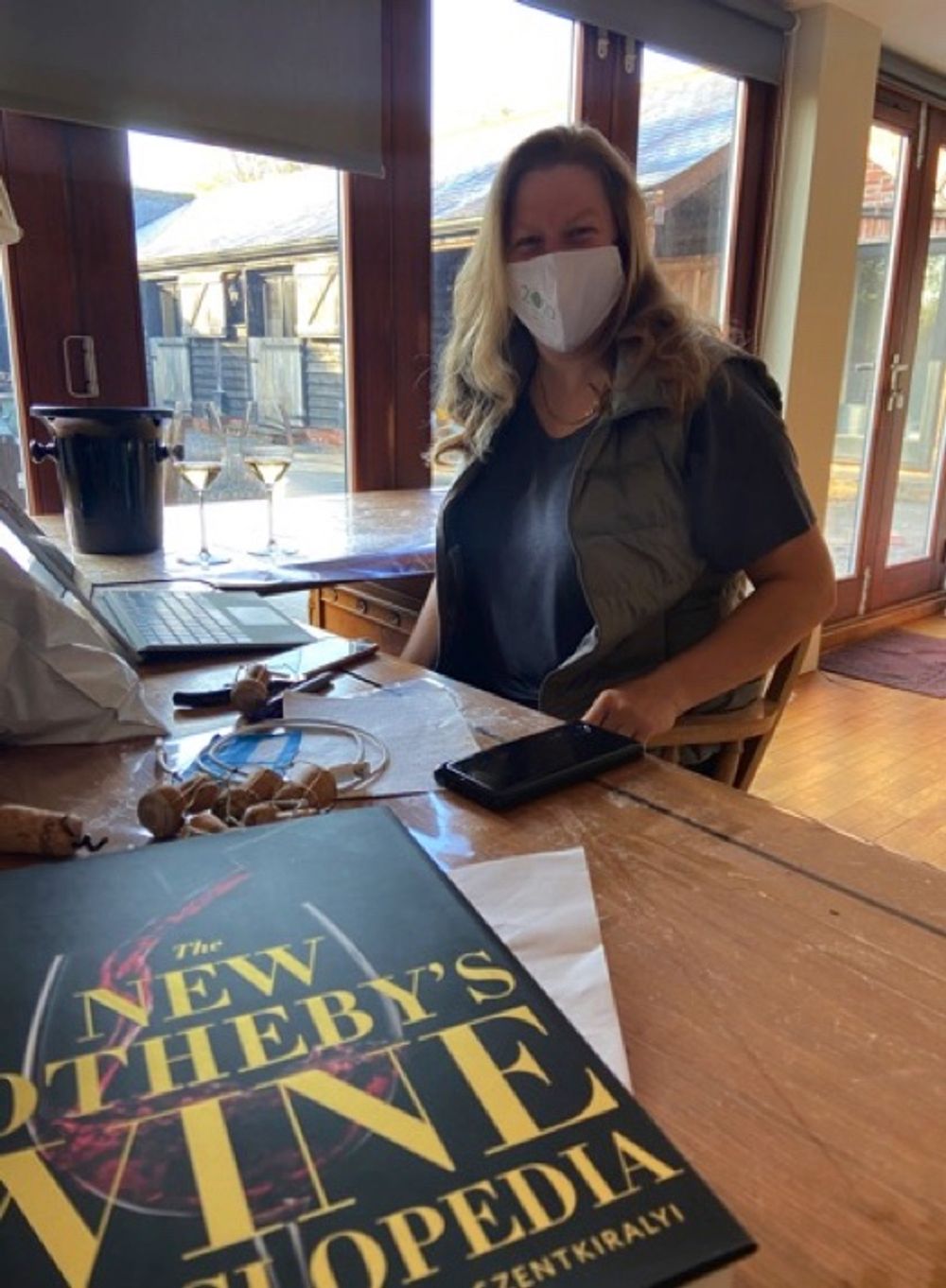
Orsi Szentkiralyi
No, far from it, key to the professionalism of this competition is that we have a tasting quality control director; Orsi Szentkiralyi. She shadows the judges’ one flight behind, opening non-blind, a new bottle of every Bronze, Commended and No Award Wines, plus all Silver-graded Deluxe Champagne and compares it to the bottle tasted by the judges. The objective? To seek out any bottle variation. New samples of any suspect wines are then fed back into the blind tasting to be re-evaluated. The knowledge that we have looked again at all underperforming wines provides me with peace of mind. Knowing that we have not missed any wine where the fault itself might be undetectable, such as TCA scalping or variable oxygen ingress.
So how effective is this Tom, and have you ever had to elevate a wine up the ladder ?
How do you know under blind conditions if a wine simply lacks fruit or is evolving at a different rate from other bottles of the same wine? Only by comparing two different bottles and Orsi has to do that for all the lowest scoring wines in the competition. This year that was nearly 1,400 bottles and that is more than any of the judges taste and, frankly, it is much harder work. Most wines Orsi feeds back into the judging have little impact, but we have given them a fair crack of the whip. She always finds a few that will be elevated to Silver medal status, but in 2020, for the very first time in six years, a no-award wine was promoted to Gold medal and ended up Best in Class. That vindicates Orsi’s work and makes me feel so good.
Run me through the rest of the team
All wines are tasted in Riedel Veritas Champagne glasses, and the logistics of pouring and logging all entries are of course done by Sensible Wine Services, with Karl Franz and Donald Mackenzie in our Bubbly Bubble for the entire period. The team also had an onsite competition steward, Harriet Wright. Harriet is responsible for the integrity of scoring, and co-ordinates between the judges, Orsi and SWS to ensure a physical barrier exists between the judges and the identity of any wine.
Tom, I hear you talk so often about magnums and light-strike can you just briefly fill me in on those points?
I was the first person to write about the how and why of the so-called ‘magnum effect’, so when I set up the CSWWC in 2014, I applied that knowledge when communicating the results, particularly when visiting producers. Time after time, I asked producers to taste their wines with me from both 75cl and 150cl formats. In some extreme instances, I would explain why the 75cl bottle would not be successful at the CSWWC and yet the magnum could easily win a Gold medal.
We go to great lengths to protecting the wines received. Everyone involved in this competition is strident in his or her condemnation of clear-glass bottles. Studies have shown that it takes just 60 minutes (constant or accumulative) of exposure to light, natural or artificial, to destroy the freshness of a wine by the production of unpleasant compounds, primarily dimethyl disulphide (DMDS). Initially, the wine just smells unclean, before developing cheese or plastic aromas and, finally, the stench of old drains and sewage.
Sparkling wine is particularly susceptible because the detection of DMDS is enhanced by the presence of CO2. I first demonstrated this in different coloured bottles of the same wine at The International Symposium of Sparkling Wine in 2013. When I set up CSWWC the following year, I insisted that all clear glass bottles should be bagged in black plastic on receipt. I really hope that all producers will eventually abandon clear-glass bottles, but in the meantime, it is the responsibility of all serious wine competitions not to cause irreparable and avoidable harm by exposing clear-glass bottles to light when processing wines and setting up flights.
Thank you Tom for the insights, now whose round is it? Ah I forgot it’s been your round every night for two weeks… much appreciated.
After two weeks of living in the Bubbly Bubble with both strangers and wine trade colleagues it was rather a sad day when we finally departed, not just because of some over indulgences the night before but of how well Tom had set up this unique Covid-savvy experience and taking us back to some normality whilst also partaking in the serious matter of wine judging.
